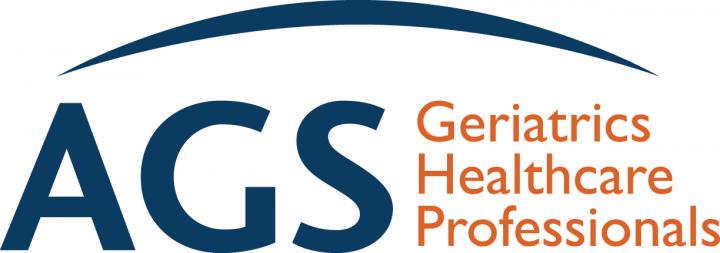
Credit: (C) 2019, American Geriatrics Society
New York (Jan. 31, 2019)–The American Geriatrics Society (AGS) today offered a ringing endorsement of the bipartisan Geriatrics Workforce Improvement Act, a proposal in the U.S. Senate to ensure communities across the U.S. have access to health professionals and other critical supports improving care for us all as we age.
Introduced by Sens. Susan Collins (R-Maine) and Bob Casey (D-Pa.), the bill aims to address the shortage of health professionals expertly trained to care for older people, and also advances supports for older adults, caregivers, and the interprofessional teams responsible for delivering high-quality care. The bill draws on considerable insights from the Eldercare Workforce Alliance (EWA), a collaborative comprised of more than 30 member organizations, including the AGS, reflecting the diverse expertise of millions of professionals who support health and aging for older Americans.
“The future we’re working for at the AGS–a future when all older Americans have access to high-quality, person-centered care–begins by building the workforce to make that possible, and by ensuring that workforce can connect us to the tools and supports we need as we age,” notes AGS Chief Executive Officer Nancy E. Lundebjerg, MPA. “We commend Sens. Collins and Casey for working with us and our partners to make that future a reality with the Geriatrics Workforce Improvement Act. By standing behind this legislation, we’re committed to a future when all Americans can look forward to affordable, high-quality, and person-centered care.”
The Geriatrics Workforce Improvement Act supports two critical objectives for geriatrics healthcare professionals, older adults, and millions of caregivers across America. First, the bill would formally establish and authorize funding for the Geriatrics Workforce Enhancement Program (GWEP), the only federal program designed to increase the number of health professionals with the skills and training to care for older people. The GWEP was launched in 2015 by the Health Resources and Services Administration (HRSA) with 44 three-year grants provided to awardees in 29 states where the workforce shortage is particularly pronounced. This important legislation will authorize GWEP funding of $45 million annually through 2024, allowing current and future awardees to:
- Educate and engage with family caregivers by training providers who can assess and address their care needs and preferences.
- Promote interprofessional team-based care by transforming clinical training environments to integrate geriatrics and primary care delivery systems.
- Improve the quality of care delivered to older adults by providing education to families and caregivers on critical care challenges such as Alzheimer’s disease and related dementias.
The bill also would reauthorize the Geriatrics Academic Career Awards (GACAs), a program that enabled career development for hundreds of clinician-educators (so named because they excel at providing care for older adults and training for others to do the same). The program was eliminated in 2015 through a consolidation of several training programs. However, HRSA late last year announced they were bringing the program back. The bill will authorize GACA funding of $6 million annually through 2024. Since 1998, original GACA recipients have trained as many as 65,000 colleagues in geriatrics expertise and have contributed to geriatrics education, research, and leadership across the U.S. Renewed GACA funding comes at a critical juncture for the field. Researchers reporting in 2017 on the impact of the GACA noted that, without a substantial increase in funding for geriatrics education and research, the U.S. risked “decimating a workforce that is essential to training health professionals on the unique healthcare needs of older adults.”
The introduction of this important legislation follows announcements of related funding opportunities from HRSA in November 2018, making each program more actionable even as legislation wends its way through Congress. HRSA anticipates funding 47 GWEPs for five years and 26 GACAs for four years. Authorization of the GWEPs and GACAs as outlined in the Geriatrics Workforce Improvement Act will help ensure that HRSA receives the funding necessary to carry these critically important geriatrics workforce training programs forward.
“This Act provides support for the health professionals and clinician-educators engaged in geriatrics education and research,” Lundebjerg concluded. “The GWEP provides support for the current transformation of primary care, while the GACA develops the next generation of innovators to improve care outcomes and care delivery. Together, these platforms play a critical role in developing the workforce we all need as we age.”
###
Support from constituents across the U.S. will be critical to ensuring lawmakers recognize the importance of this legislative proposal. For more information on contacting your U.S. Senators, visit the AGS Health in Aging Advocacy Center at cqrcengage.com/geriatrics.
About the American Geriatrics Society
Founded in 1942, the American Geriatrics Society (AGS) is a nationwide, not-for-profit society of geriatrics healthcare professionals that has–for 75 years–worked to improve the health, independence, and quality of life of older people. Its nearly 6,000 members include geriatricians, geriatric nurses, social workers, family practitioners, physician assistants, pharmacists, and internists. The Society provides leadership to healthcare professionals, policymakers, and the public by implementing and advocating for programs in patient care, research, professional and public education, and public policy. For more information, visit AmericanGeriatrics.org.
Media Contact
Daniel E Trucil
[email protected]
212-822-3589
Original Source
https:/




